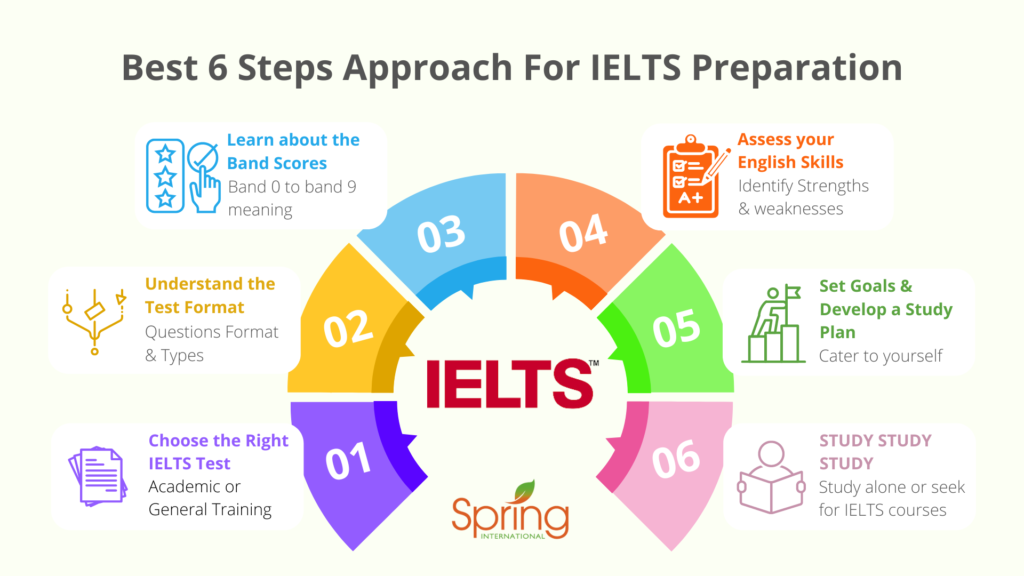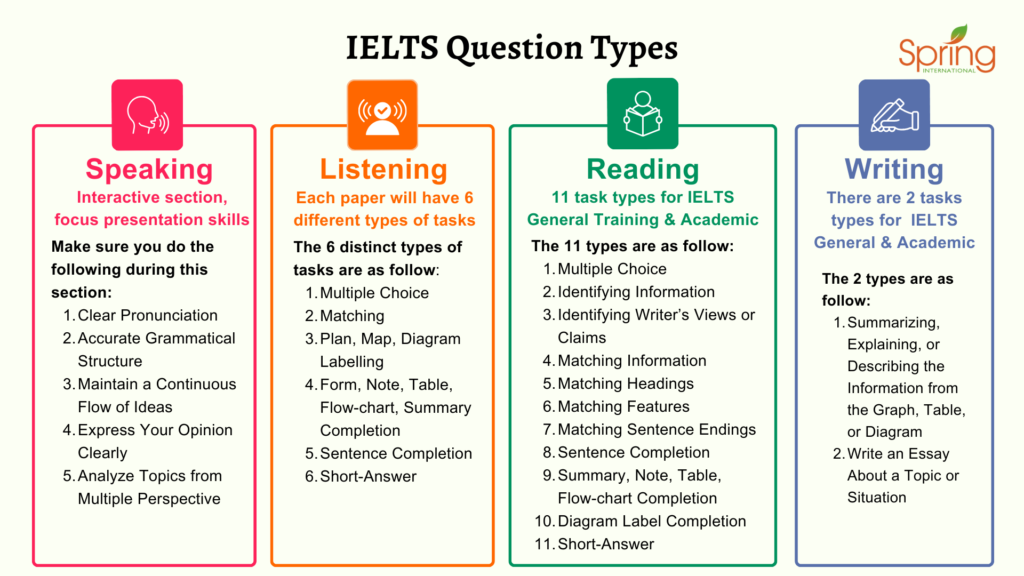
Are you gearing up to take the International English Language Testing System (IELTS)? Whether you’re aiming to study abroad, pursue professional opportunities, or immigrate to an English-speaking country, mastering the IELTS is a crucial step in achieving your goals. Here are 6 simple steps to help you prepare for the IELTS test.
Table of Contents
Step 1: Choose the Right IELTS Test
The type of IELTS test you need to take depends on your intentions. Are you planning to work, study, or immigrate to an English-speaking country? If your goal is to study in higher education or seek professional registration, you’ll most likely need to take the IELTS Academic test. Conversely, if you are aiming for vocational training or migration to Australia, New Zealand, Canada, or the UK, the IELTS General Training test is more suitable. Refer to this blog for more information about IELTS Academic and IELTS General Training.
Step 2: Understand the Test Format
IELTS Test Format
IELTS Question Types

Step 3: Learn about the Band Score
The IELTS test results are reported as band scores, from band 0 to band 9. Knowing what each band score represents will help you set realistic goals and understand the level of proficiency required for your desired score. Moreover, you should also find out the band score requirements corresponding to your purpose of taking IELTS. For more information about IELTS scores, you can visit here.
*Information taken from Official IELTS Website
Step 4: Assess Your English Skills
When it comes to preparing for IELTS, understanding your strengths and weaknesses is imperative. It’s like knowing where you stand before you hit the road. You can take a mock test to see where you stand within the band scores. By figuring out what you’re good at and where you need a bit more work, planning your study sessions will be a lot more effective. It’s all about making the most of your time and energy.
Step 5: Set Goals and Develop a Study Plan
Checklist!
- Identify clear target scores and objectives.
- Schedule study sessions for all four test sections.
- Consistently practice and review your strengths and weaknesses.
- Track your progress and adjust your study plan accordingly.
- Stay Flexible – Be open to adapting the plan changes as needed.
- Make use of diverse study materials and make English a habit
Step 6: Study, Study, Study
If you are studying alone, search for reliable sources and gather a variety of study materials such as practice tests, sample questions, and instructional videos. Besides that, you should also engage in activities like reading English literature, listening to podcasts, and engaging in conversations with native speakers. By immersing yourself in the language, you’ll strengthen your skills and boost your confidence for the IELTS exam.
However, studying for the IELTS exam can be challenging when done alone, as it requires a high level of motivation, focus, and comprehensive coverage of the test content. You can also consider following the majority and enrolling in an IELTS preparatory course provided by reputable providers such as Acuity Academy. You can expect guidance from expert tutors, tailored study materials, and a supportive learning environment.
Frequently Asked Questions About IELTS
Other Blogs You Might Be Interested In
Author: Verlin You
Download Brochure
Please fill in the following details so we can assist you better.
This will close in 0 seconds
- Login
- Sign Up
Enquire now
Fill up your contact details below so we can get in touch with you as soon as possible.








